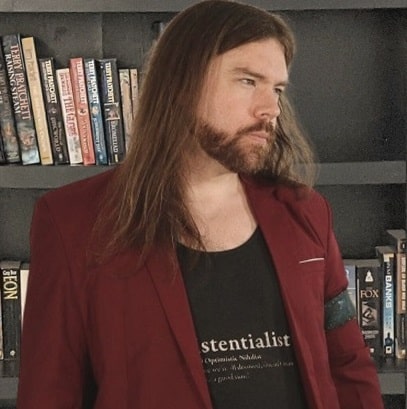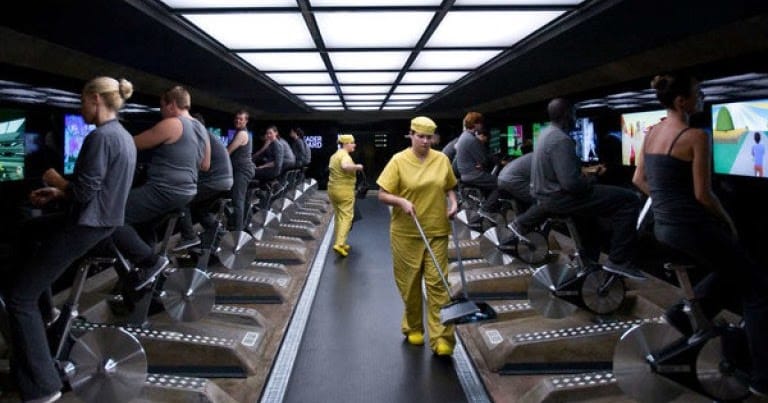Digital Nihilism – Autonomy Over Time & Freedom of Access
In the context of nihilism, time of the individual is sacrosanct. An individual is formed, and granted a brief moment of life during which they’re permitted to explore what the playground of the universe has to offer, after which their body will expire and they will return to the void.
Thus, forcibly stealing another’s time is, perhaps, the greatest crime that can be committed against a living being. Its time should be spent wisely pursuing its internal and external environment, perusing the world for beauty and understanding of its function and by extension, meaning. Furthermore, because external exploration is key to the individual’s quest for meaning, access to as much of the external universe as possible for every individual is a target that should be adopted as a universal good.
For most of human history, these ideals were not possible to pursue, but now, on the precipice of the ascension of AI and robotics technology that makes human productivity obsolete, we should understand the unique opportunity granted to us by our time in history.
It’s well known that machines’ ability to generate productivity will outpace a human’s ability. Indeed, many of the jobs humans currently do are better performed by machines, and the jobs are protected artificially by human political structures, damaging both the bottom-line productivity of the industry itself as well as the human’s freedom to pursue his or her own sense of meaning. The reason these jobs are maintained is because our fictional system of commerce has created a false gospel: that purpose comes from job title and meaning comes from productivity. It is a service to a religion of consumerism and just like any religion it has its own dogmas; but also just like religion, we recognize in nihilism that it is fiction. For those whom meaning can be derived from such a narrative, adherence to this religion may be an inherent good; but forced participation in such a belief system is a breach of personal autonomy that impedes an individual’s ability to pursue meaning.
Just like the myth of John Henry, who competed against machines in laying down railroad track, meaning may be found in such a competition with the AI. Indeed, humankind should be free to pursue such meaning, if they so desire. They should be able to worship at the altar of consumerism if they so desire, and to live the lifestyle prescribed for it. They should not, however, be able to force individuals for whom no meaning is derived from what has evolved to be a fictional endeavor – generating productivity for a system that does not benefit from human input.
As AI and automation take over larger and larger amounts of the human economy, we should see this as an opportunity to give people autonomy over their own time. Time, the only thing a human is born with, the only thing which is fully, inarguably theirs, and the only thing which can never be given, only lost, is the most precious resource a human being has.
As we pursue a future where scarcity diminishes – scarcity of resources is replaced by abundance – we will find scarcity of time is the limiting factor in human existence. To take someone’s time is a great crime against them and our current society is set up to casually rob people of their time regularly, in the most egregious of ways. A person’s time may be spent unwisely – but it is theirs to spend; leveraging various forms of power against them in order to coerce their time toward an external end, whether that be consumerist goals, militarist goals, or the goals of any other such ideology, is, in truth, a grand theft against that person of the highest order. Stealing a person’s time is no different than stealing a piece of life itself, but in the context of our current systems, it’s treated not even as a crime at all.
Furthermore, because exploration of the external world and the accrual of meaningful experience may lead to the cessation of suffering for the individual, we can conclude that not only should the individual have time to pursue their quest for meaning, but also the physical allowance to do so. Gatekeeping parts of the universe also shuts out the potential for meaningful experience enclosed within. If a person’s journey takes them to a place, indeed, they should be allowed to traverse that place. Just as with coercion over an individual to take their time is performed by various avenues, almost all more indirect than physical force, so, too, is access to physical space withheld by powers which are often more invisible than physical barriers. Access to physical space may be withheld by price, or intimidation, or cultural discord.
As nihilists, we see these things as manifestations of power and domination, and the ideologies behind them as fictional constructs, meaningless as any other beyond their ability to affect the direction of human existence. However, as good nihilists, we recognize that the improvement of the ride is the best possible goal, and that every being should have the fullest access to everything life has to offer in order to make the most of their short time here. If we think of life as a theme park, there should be no case where any individual’s time is cut short, and everyone should have a VIP, all access pass.
From the utilitarian perspective we can argue that due to the productivity created by AI and autonomation, there is no downside to a human being deciding how to best apply their time and energy without external coercion outside of the dogma of consumerist ideology. From the metaphysical perspective we can argue that autonomy over time and freedom of access allows human beings to better understand themselves and reach a point of self-actualization that allows them to understand the interconnectedness of things and that the cessation of their own suffering is best served by serving the cessation of suffering for all.
The argument, from either direction, has the same conclusion: that the human race is best served by systems which value human life, autonomy over time and freedom, and that external coercion to participate in systems, mostly antiquated and upheld as tradition, which do not serve those treasures does not serve humanity well in the long run.








